Thank you for downloading this Simon & Schuster ebook.
Get a FREE ebook when you join our mailing list. Plus, get updates on new releases, deals, recommended reads, and more from Simon & Schuster. Click below to sign up and see terms and conditions.
CLICK HERE TO SIGN UP
Already a subscriber? Provide your email again so we can register this ebook and send you more of what you like to read. You will continue to receive exclusive offers in your inbox.
We hope you enjoyed reading this Simon & Schuster ebook.
Get a FREE ebook when you join our mailing list. Plus, get updates on new releases, deals, recommended reads, and more from Simon & Schuster. Click below to sign up and see terms and conditions.
CLICK HERE TO SIGN UP
Already a subscriber? Provide your email again so we can register this ebook and send you more of what you like to read. You will continue to receive exclusive offers in your inbox.

An Imprint of Simon & Schuster, Inc.
1230 Avenue of the Americas
New York, NY 10020
www.SimonandSchuster.com
Copyright 2012 by Liao Yiwu
Translated from the Chinese by David and Jessie Cowhig and Ross Perlin
Originally published in 2012 in Germany by Fischer as Die Kugel und das Opium: Leben und Tad am Platz des Himmlischen Friedens
All rights reserved, including the right to reproduce this book or portions thereof in any form whatsoever. For information, address Atria Books Subsidiary Rights Department, 1230 Avenue of the Americas, New York, NY 10020.
First Atria Books hardcover edition May 2019
 and colophon are trademarks of Simon & Schuster, Inc.
and colophon are trademarks of Simon & Schuster, Inc.
For information about special discounts for bulk purchases, please contact Simon & Schuster Special Sales at 1-866-506-1949 or .
The Simon & Schuster Speakers Bureau can bring authors to your live event. For more information or to book an event, contact the Simon & Schuster Speakers Bureau at 1-866-248-3049 or visit our website at www.simonspeakers.com.
Interior design by Silverglass
Jacket design by James Iacobelli
Jacket images Shutterstock
Author photograph Elisabeth Bernstein
Library of Congress Cataloging-in-Publication Data has been applied for.
ISBN 978-1-9821-2664-3
ISBN 978-1-9821-2666-7 (ebook)
Introduction
by Ian Johnson
I ts risky to pick turning points in world history, but its safe to say that the Tiananmen Massacre on the night of June 34, 1989, in downtown Beijing, was one of the most important of the past half century. At the time it was recognized as a momentous eventa bloodbath in the center of a world capital usually isbut three decades later its importance has only grown, marking the end of one China and the rise of todays grim superpower.
For on that night, soldiers armed with automatic weapons and tanks smashed through crude barricades, killing hundreds, possibly thousands, of Beijingers trying to stop the troops from breaking up a student protest. The students had occupied the citys gargantuan Tiananmen Square, calling for an end to corruption and official privilege and for a more open, freer society.
The students were flawedas are most people, especially when they are eighteen or nineteen years old. Most had little idea of what they wanted. And some were arrogant. But they were well-meaning and idealistic, and many Chinese saw in them a hope for a better, more decent society. From across the country, Chinese traveled to Beijing to support them, wired them money, and wrote poems in their honor.
And so, on that fateful night, thousands of ordinary Beijingers ran out onto the streets to confront the troops. On several previous nights the government had also tried to clear the square but sent in unarmed troops. Locals talked them out of their attack and they returned to their barracks.
But this time around, Chinas rulers decided to teach their subjects a lesson they wouldnt forget. They sent in hardened troops with orders to shoot their way to the center of town. The carnage lasted hours and the citys hospitals overflowed with the dead and dying. The message was clear: This will not be tolerated. Ever.
Since then, Chinas course has been set: economic development, yes; an open society, no. The government has banned, arrested, and jailed people who tried to set up new political parties or even write about the need for change. It has brought the Internet to heel by deploying thousands of censors. And it has pushed its ambitions abroad by funding Western universities and think tanks and drawing up blacklists of people who mention its deeds. These are the bullets it uses to silence opponents.
The opium is the benefits of economic growththe real prosperity that makes many people inside and outside of China wary of rocking the boat. For many around the world, China has become an alluring model, and its many apologists, including leading Western political leaders, happily eat from its trough.
So today we have a China that is richer than ever, boasting bullet trains and aircraft carriers, but politically stunted and often driven by nationalistic aimsan unhealthy mixture that has rarely turned out well in world history. It is a country for which 1989 did not mean the fall of communism as it did in Europe but rather is synonymous with a failed revolution.
And yet, for all of their importance, these events have never been told with much lan or vigor. We have deadening academic prose, policy-wonk jargon, but little to connect us with the people who made these events happen.
That is why this book is so important. It is not a definitive history of Tiananmen but something more compelling: intimate interviews with people who fought for the revolution, were jailed, and were then released to a country that had suddenly turned away from politics and embraced the deadening pleasures of consumer society and the cheap thrills of nationalism. Thats why this book is about more than the events of three decades ago; it is also a portrait of todays unhappy and repressed China.
Our guide is Liao Yiwu, the most remarkable chronicler of real-life China to emerge from his country. He is something like a Chinese Studs Terkel, compiling oral histories of key turning points in his countrys history, but he has the maniacal fearlessness of the great Polish war correspondent Ryszard Kapuscinski. He is funny, self-deprecating, and brutally honest about his own failures, making him a compassionate, credible narrator for these stories.
Liao came to international attention thanks to a series of remarkable portraits of Chinas underclass, which he brought to life in numerous profiles and books. His methodology is that of a gumshoe private eye: he walks, listens, and observes. Himself a participant in the protests, he spent four years in jail and then fifteen years interviewing grassroots China. He went to people in remote mountains or under secret-police surveillance. His work often landed him in trouble and often under house arrest. It cost him two marriages and the loss of contact with his first child. But he has remained driven to write the stories that official history books in China try to censor out of existence.
Most of what you hold in your hands wouldnt have come to light if not for Liaos personal courage. Facing daily police harassment and a ban on travel abroad, Liao decided in 2011 to flee China for the West. After careful planning, he packed a backpack full of tapes, notes, and photos. He traveled to the Vietnamese border and found a place to walk across to freedom. He soon flew off to Germany, where he lives today with his new family, and a new existence in Berlin.
Next page

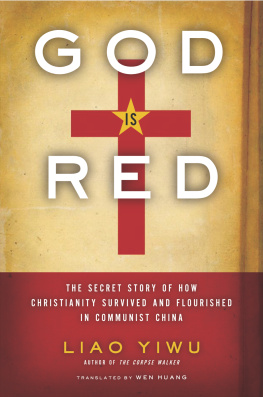
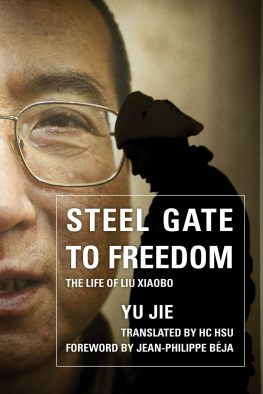
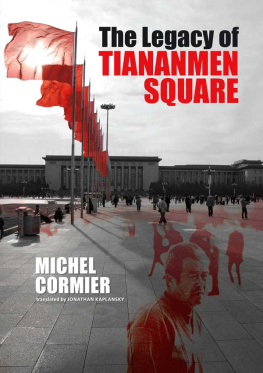
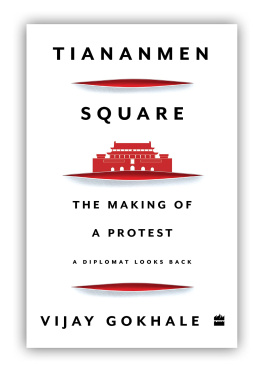
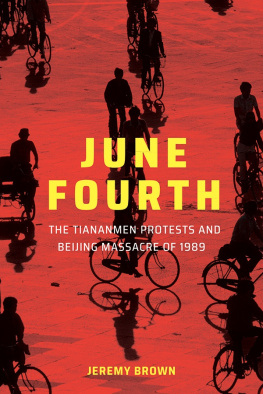
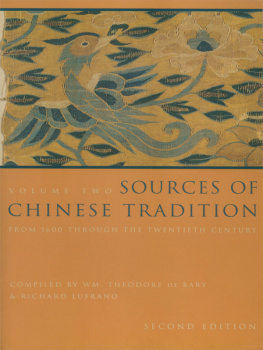


 and colophon are trademarks of Simon & Schuster, Inc.
and colophon are trademarks of Simon & Schuster, Inc.